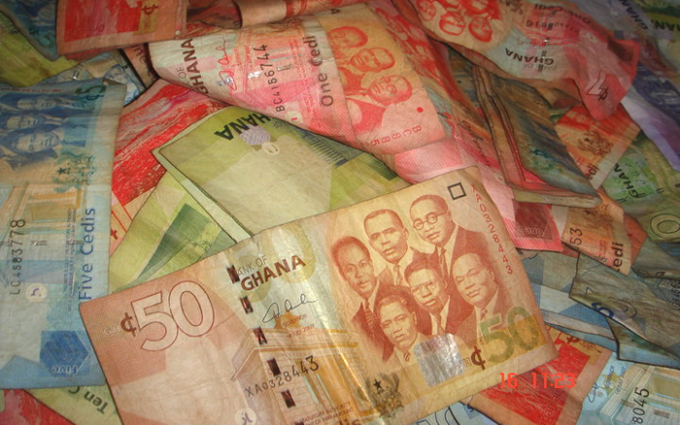
Investor confidence, cedi
Investors put their money into a business with the primary aim of making more money or profit. Some factors may cause that aim not to be realised. And one of these factors is exchange rate risks.
The risk that you would have to pay more than you planned to buy a foreign currency from a foreign market.
Advertisement
There are three major types of exchange rate risks, namely transaction risk, translation risk and economic risk.
Transaction risk: is the risk that a company faces when it is buying a product from a company located in a foreign country.
If Ghana is buying a product from a US market and the Ghanaian cedi is lower (depreciated compared to the US dollar), then the Ghanaian businessman will have to pay with more cedis for the same product it would have paid for with less cedis, for example, four months ago.
Exchange rate GH¢ 6.3 = $1; therefore, an item that cost $100 will cost the Ghanaian businessman GH¢630.00 (GH¢6.3 × 100)
In April 2022 the exchange rate was GH¢ 7.8 = $1.
The same product that cost $100, will cost the Ghana businessman GH¢ 780 (GHC 7.8 × 100). The difference of GH¢150 (780 - 630) is a loss to the investor as a result of the depreciation.
If the Ghana cedi continues to depreciate, the loss gap will widen for the investor (businessman) and eventually put him or her out of business.
Translation risk: If a parent company has a subsidiary in another country, it could face huge losses when the subsidiary assets are consolidated with the assets of the parent company.
What it means is that the subsidiary will have its assets value lowered due to the weaker currency in that country. In this case, if a US company consolidates its financial statement with its subsidiary in Ghana, the Ghanaian subsidiary will have lower asset value due to the weaker exchange rate and hence reducing the total weight of all the company assets put together.
Economic risk: Is the change in competitive strength of imports and exports.
If Ghana and Cote d'Ivoire both export cocoa to US or UK market, then the country with a weaker currency will attract more buyers for its product because fewer currency is required to buy from its market.
Market effect, weak cedi
This will create problems like: Poor access to sources of finance (loans). Due to the depreciation of the cedi, consolidated assets will have lower values and will not be able to give good collateral to secure great loans for intended projects and expansion of business.
It would also lower the returns on capital employed (ROCE). ROCE is the measure of a company’s profit in relation to the capital employed. As the loss margin widens, due to the continuous loss caused by the depreciation of the cedi, the profit margin compared to capital employed will be lower for investment in Ghana compared to another country with a stronger currency. That is, one dollar invested in China will give a better rate of return than it will in Ghana.
Additionally, it would lower profit margin and undermining investor confidence. As illustrated above, the depreciation will cause the loss gap to widen hence reducing profit significantly. If the loss margin continues to widen, in the long run, the Ghanaian economy will look competitively unattractive causing foreign investors to exit the shores of Ghana.
Suggestions
Production; the government, stakeholders and policymakers should focus more on production through the following strategies; tax incentives and subsidies.
These strategies will definitely increase production in sectors that can attract foreign exchange like agriculture, entertainment, and energy (oil), among others.
This will increase export and also positive balance of payment giving some strength to the weaker cedi to recover.
Internal revenue: the government must demonstrate the ability to generate internal revenue through tax and export to pay off the high current debt of the country when they fall due. This makes the passing of the E-Levy bill a quicker and great implementation strategy.
Funding: the government may also consider bringing in more foreign loans like the Eurobond to give the cedi more strength to recover against the dollar.
This is only possible if government can demonstrate the ability to pay off loans on time due to the poor credit rating. The effort of government to cut down on executive expenditure is a good commitment.
Simple currency hedging strategies include forward contract, currency options and swaps. You may speak to a professional accountant, your business advisory team or your banker.
The writer is an Accountant & Finance Professional, EMBA, University of Ghana. E-mail: [email protected]




